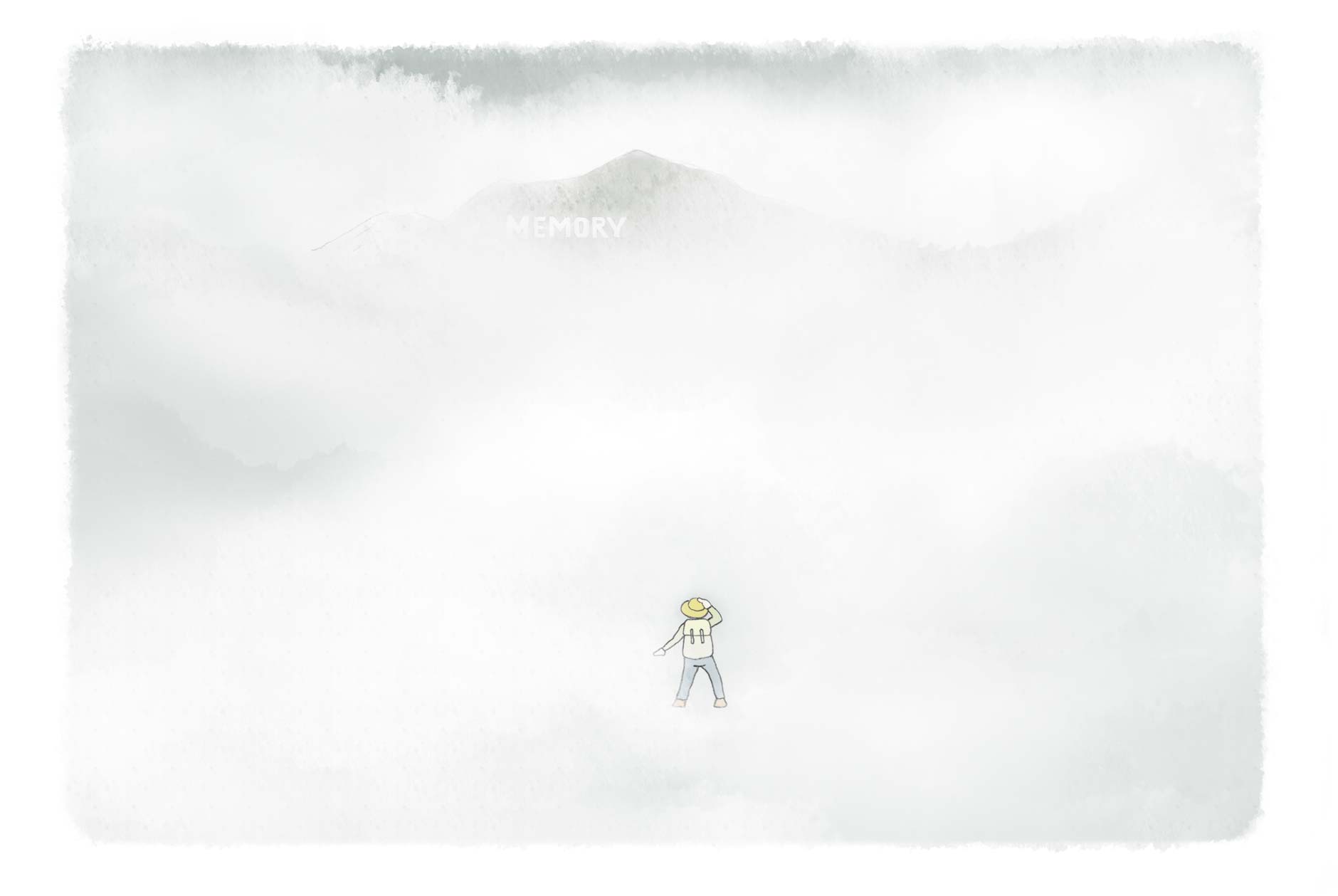Column: 10
Whiteout Valley
Lose visibility. Memories vanish.
2020.02.19

Here in the Dementia World, there is a valley where whiteouts caused by dense fog and blizzards will completely block your visibility and memories. You can enjoy stunning scenery when the sky is clear. However, sudden changes in the weather bring impenetrable fog and heavy, blowing snow. They cover everything in white and you cannot see anything anymore. Together with visibility, you will also lose sight of the memories of the world you were just looking at.
We rely on our eyes more than we realize. We tend to forget what we need to do unless we make it visible in one way or another, such as by writing it down in a diary or on a to-do list. You might forget about your favorite clothes sitting in your closet and miss all the opportunities to wear them over years, too.
One day while I was shopping, I remembered that I had run out of toilet paper and bought some. However, back at home, I saw the bathroom shelf already filled with toilet paper! “Uh-oh! We already have plenty. Who bought this, and when?” I had no idea.*1
Assuming it was my husband, I directed my complaint to him. However, he told me it was not him. In fact, he told me that I was the one who bought toilet paper the previous week. I was surprised and did not want to believe his words. However, it was apparent that I somehow forgot putting toilet paper on the shelf and purchased some more again. I see the shelf full of toilet paper every time I use the bathroom. However, the moment I close the door and the sight is gone, the memory vanishes from my mind.*2
On another day, late at night, I woke up to use the bathroom but could not tell where it was. While the darkness was certainly making it harder for me to find the right door, I was also unable to visualize in my mind what should be on the other side of each door.*3 Feeling helpless, I opened the doors one after another to check and barely managed to make it to the bathroom in time.
I had a similar experience at work, too. I started up my computer to continue data entry work that I had begun earlier. However, I could not find the file I had been working on the day before. I did see some folders on my desktop but could not imagine what was stored in them at all.*3 It was the first time I had such an experience, and I felt dismayed.
I somehow made it through the day at work. I did some shopping and went home. I then put the meat and vegetables that I had just purchased in the fridge and closed the door. To my surprise, I instantly forgot what I had just put in the fridge, as well as whatever else was stored there.*2 Although I had just placed food in the fridge with my own hands, I ended up opening the fridge again to check what was there for dinner.
To tell you the truth, I had been having a difficulty taking eating utensils out of my cupboards, too. When the doors were closed, I could not remember where different utensils were stored.*3 I needed to keep opening and closing all the cupboards every time I prepared a meal. I would also keep using the same utensils that I found on the dishrack. This problem was solved, however, by installing cupboards with transparent glass doors.
I understand there are apps to manage photos of fridge content or refrigerator cameras that allow us to check what is stored there in real time. With these, I do not need to open the fridge again and again. Also, using an app or a camera while I am out shopping helps me avoid buying items that I already have at home.
When writing your shopping list, rather than considering what you already have at home, I recommend you focus on what you do not have not at home. Have a memo pad ready in the kitchen and jot things down as soon as you realize you do not have them. Then, bring that list when you go shopping.
This is how I now rely on letters, apps, and new technologies to help me with my tendency to forget. I no longer buy toilet paper or food that I do not need.
Barrier:
When people with dementia enter the "Whiteout Valley",
the following 3 mental and physical dysfunctions might be at play.
Share
- 前へ
- 記事一覧へ
- 次へ

